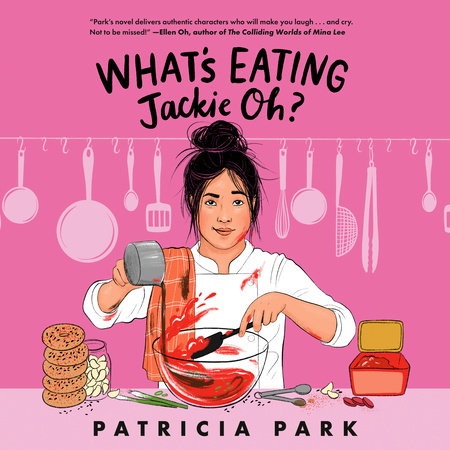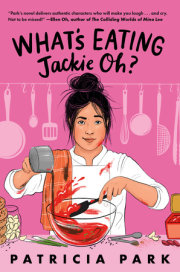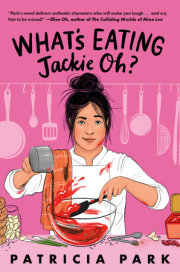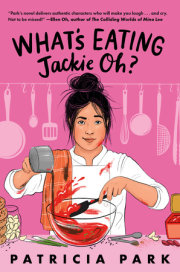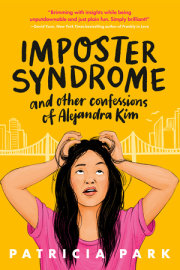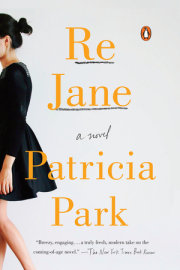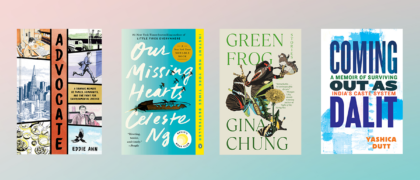Not Your Model Minority
I’m not one of those TI-84 Plus, Princeton Review, Barron’s, Kaplan, Khan, Kumon, hagwon, AP-everything Asian kids with the turtle backpacks crawling all over the 7 train. I used to be. But I’m done with all that.
I just haven’t told my parents yet.
Umma went to Bronx Science, like me, and Appa went to Stuyvesant. Unlike me, they were straight A students who went on to Harvard and Yale Law School (Umma), and Carnegie Mellon and Columbia Business School (Appa). That my dad’s not a double-Ivy like my mom is kind of a sore spot, and even though he fronts like it isn’t, I can tell Appa’s still carrying that ginormous chip on his shoulder. But then again, Umma “only” went to Science instead of Stuy—so I guess their “educational disparity” sort of evens out.
These are the things my parents care about. Potato, potahto.
They’d seriously lose it if they found out I was flunking out of Science.
*** Okay, “flunk” is a strong word. Really, I’m just barely passing one class, Global History (70%), and I’m doing “mediocre” (90.1%) in my other classes. My gripe with Global History is that there’s got to be more to life than memorizing pointless historical facts about someone else’s past, when—shouldn’t I be concentrating on my future?
Also, Mr. Doumann keeps confusing me for Jennifer Oh, because to him we’re All the Same. Most of my teachers are “woke” or whatever, but Mr. D is a relic from the past—not unlike the very subject he teaches. The DOE should just fire him already, but probably can’t (because tenure, teacher’s union, pension, etc.). I don’t tell Umma and Appa about Mr. Doumann because they’ll have no sympathy:
Stop making excuses. Tough it out. The same things they used to tell my older brother (“Oppa” to me, Justin to the outside world).
For us Ohs, to be anything less than perfect means you’re already a failure. Just ask Oppa.
Back when I used to drink the model minority Kool-Aid, I was all about the Ivy Leagues, too. I thought that was what you were
supposed to do. The purpose of life was to study hard, get into Harvard/Princeton/Yale, land a corporate job with a sweet 401k, and make babies that would study hard, get into Harvard/Princeton/Yale, etc., and continue your whole miserable corporate life cycle.
My parents are workaholics, which they’d probably take as the compliment it isn’t.
Things cost money is Appa’s favorite catchphrase. He works in private equity and has a closetful of suits that I’m constantly picking up and dropping off at the dry cleaners, and I only see his shadow darting into the apartment when he comes home from work, long after I’m already in bed.
Umma’s up for managing partner at Leviathan, White & Gross LLP. According to Appa, the promotion is hers to lose. “Your mom’s put in the ‘sweat equity,’ ” and the other candidate’s always blowing off work for—Appa curls his fingers into sarcastic air quotes—“self-care days,” leaving Umma to pick up the slack. Umma’s never been more keyed up and stressed out about this potential promotion. Mostly I try to stay out of her way.
Study hard, get into an Ivy, land a corporate job, make babies. Repeat. These are the Oh Family Core Values.
In other words, it’s our American dream.
When I turned one year old, I grabbed a dollar bill and my fate was sealed—I’d be financially successful for the rest of my life. Instead of all the other objects (fates) my infant self
could have reached for during my doljabi ceremony: pencil (scholar), calculator (accountant), paintbrush (artist), golf ball (LPGA pro), iPhone (the next Steve Jobs), and so on.
“Pay up!” Halmoni, ever the hustler, had placed bets with her friends. “My granddaughter’s going to be
rich!”
Apparently she told Haraboji to pay up, too. My grandfather fished for his wallet and grumbled, “알았어.”
Fine/Got it/Capisce. (My Korean’s not great, so that’s my lost-in-translation translation.)
Haraboji had bet on the bowl of rice—because he wanted me to never go hungry in life.
H&H are my bedrock. My grandparents basically raised me in the kitchen of Melty’s, their deli in Midtown. Apparently Umma took the bare-minimum maternity leave because it wasn’t a good look to take longer than that. She’d drop me off at Melty’s each morning on her way to the office. I’d cry and cry, and Halmoni would shush me: “Jackie-ya, you want Umma lose her job? Then how she gonna pay your food? Toys? College? Be good girl, stop crying.”
Eventually, I learned to stop crying.
Eventually, I learned to stop depending on my mother at all.
As soon as I was old enough to hold a knife, I was put to work. Which I’m pretty sure is a DOH violation, as well as a Child Services one.
It’s the immigrant way.
Umma, whose idea of “cooking” is pressing a button to order delivery, insisted on negotiating my pay at Melty’s because “I’ll not have you repeat my exploited childhood in that kitchen.”
But I’d work at Melty’s for free. Cooking’s my passion. Which I know sounds like some BS you’d write on a college application—
my passions include Ultimate Frisbee, AP Physics, cleaning puppy poop at the animal shelter!—but I’m actually for real.
I think it’s what I want to do for the rest of my life.
Bayside
On Fridays after hagwon—that’s Korean for “the school you go to after school because regular school isn’t enough”—I head to H&H’s house in Bayside for
Burn Off! Yes, my Friday-night jam is watching a cooking show with my grandparents and their dog.
Don’t judge.
We’re sitting at the kitchen table, eating candied kelp. Bingsu, the jindo, sits alert at Haraboji’s feet. She’s too dignified to lie down and beg for scraps. Her foxlike ears are perked up, like an attack could come from anywhere at any time.
Dogs are funny like that. They are their own people.
Host Dennis appears on the TV screen in his usual toga and laurels. He’s so white, he’s orange—if that makes any sense—like he’s been steeped in Tang. His eyes are the same shade as chlorine pool water. Halmoni is in love with him.
He starts his opening spiel: “Ladies, gentlemen, countrymen! Lend me your ears! Coming to you
hot from Kitchen Coliseum, it’s
Burn Off!”
Host Dennis smiles his bleachy grin. When he’s not hosting
Burn Off!, he’s flashing his pearls in all those toothpaste ads. Halmoni claps and swoons, and Haraboji and I exchange an eye roll.
The camera pans to a Roman gladiator blowing on a long Viking horn. It’s completely culturally inaccurate. I say this as someone flunking Global History.
Speaking of which, my last exam is still crammed in the bottom of my backpack. I don’t want to think about it. Just like I don’t want to think about how my Global final is next month, and I’m so not prepared. I fix my attention back to the screen.
Host Dennis goes, “Today’s contestants will slice. They’ll dice. They’ll fight to the finish! But only one chef will win the crown of—”
The crowd finishes for him: “
Burn Off! champion!”
The TV fritzes out.
“이놈 . . . !” Haraboji grunts, which is Korean for
You little misbehaving bastard! He slaps the side of the TV: nothing. It’s so old, H&H should have curbed it last millennium. Bingsu snarls at the “misbehaving” TV because she always has Haraboji’s back. He’s her favorite. Bingsu likes Halmoni okay, and she and I just coexist.
The TV comes back to life.
“—secret ingredients are! Zucchini! Toasted sesame seeds! Red wine vinegar! Prime rib! Strawberry lollipops! And . . . chocolate-covered ants!” says Host Dennis. “Chefs, you get thirty-seven minutes to complete your dish! So cook off or—”
Copyright © 2024 by Patricia Park. All rights reserved. No part of this excerpt may be reproduced or reprinted without permission in writing from the publisher.

